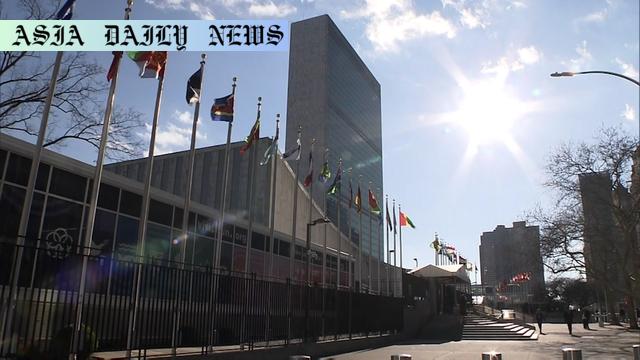North Korea-Russia military ties spark UN Security Council concerns on nuclear and missile programs during ongoing geopolitical tensions.

Heightened Concerns Over North Korea-Russia Military Ties
The international spotlight has turned toward the increasingly concerning military collaboration between North Korea and Russia, as evidenced by a recent United Nations Security Council meeting. This development, which comes amidst rising tensions on multiple global fronts, underscores new geopolitical complexities. UN member nations have expressed concern over these deepening ties, especially given North Korea’s continued development of its nuclear arsenal and ballistic missile programs. Such actions pose not only regional risks but also potential global repercussions.
UN members remain particularly troubled following the dissolution of the UN panel of experts tasked with monitoring sanctions on North Korea. This crucial panel ceased work on April 30 of last year after Russia vetoed the resolution to extend its mandate. The absence of active oversight has allowed North Korea’s nuclear capabilities to grow unimpeded. South Korea’s UN Ambassador Hwang Joon-kook emphasized that North Korea has “brazenly accelerated” its nuclear ambitions, creating a precarious situation for global security.
Global Responses to Violations of International Law
As members of the Security Council grapple with these alarming developments, reactions have differed sharply. Japan’s Ambassador Yamazaki Kazuyuki unequivocally condemned the military cooperation between Russia and North Korea, citing clear violations of international law and expressing concern for global security. Echoing these sentiments, the acting US representative to the UN, Ambassador Dorothy Shea, pointed to North Korea’s illicit use of coal and iron ore exports to fund its weapons of mass destruction. Such financial maneuvers, according to Ambassador Shea, highlight a need for stringent international oversight and enforcement of economic sanctions.
However, divergent perspectives emerged during the meeting. North Korea’s UN Ambassador Kim Song dismissed international critiques, instead claiming that nations must “get accustomed to the new reality” of closer ties between Pyongyang and Moscow. Similarly, Russia’s UN Ambassador Vassily Nebenzia defended the partnership, framing their relationship as an evolving alliance that benefits both nations. China’s UN ambassador Fu Cong also added skepticism, advising the US to “get their facts straight” before making accusations.
The Broader Implications on Global Security
The strengthening military ties between North Korea and Russia underscore a departure from the norms of international diplomacy and cooperation. Such developments have raised alarm across multiple regions. Japan and South Korea have warned of the increased threats that such alliances pose to the security of neighboring countries, with South Korea labeling North Korea’s advancements as a “brazen acceleration” of nuclear activities.
Furthermore, these military collaborations come at a time when Russia continues its invasion of Ukraine, adding an additional layer of complexity to its increasing military ties with North Korea. As highlighted by multiple UN delegates, these dynamics do not only endanger the immediate regions but also constitute a broader challenge to international peace and security frameworks.
Urgent Need for Collaborative Global Action
The ongoing developments necessitate stronger collaboration between countries to deter further escalation. Increased vigilance, coupled with efforts to reestablish the UN sanctions monitoring panel, remains a critical priority. It is clear that unchecked alliances, such as those between North Korea and Russia, have the potential to destabilize the international community at large. These circumstances present an urgent call-to-action for the global community to uphold international laws and ensure stricter accountability for violators.
Commentary
The Strategic Significance of Military Alliances
The growing relationship between North Korea and Russia is a stark reminder of how alliances shape global power dynamics. As countries face increasing polarization, collaborative efforts between nations like these can alter strategic balances, not only in their respective regions but globally. Their enhanced military engagement appears to be not just a reaction to their geopolitical isolation but also a calculated move to leverage existing conflicts and vulnerabilities of other global powers.
The Ripple Effects on Global Peace
It’s troubling to consider the possible ramifications of such alliances for global peace. North Korea’s acceleration of its nuclear program and Russia’s continued role in the war in Ukraine signal tumultuous times ahead. The fact that this collaboration violates international law cannot be understated. It’s imperative that the international community responds swiftly and cohesively to prevent further instability.
The Role of Diplomacy in Preventing Escalation
Lastly, diplomatic approaches must remain central to mitigating this growing threat. The cessation of the UN monitoring panel is unfortunate, given its significance in ensuring accountability. However, its reinstatement or an equivalent alternative could prove essential to curbing the detrimental effects of such alliances. Strategic, unified action by countries advocating for peace will likely be the key to resolving this delicate issue.


